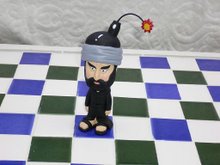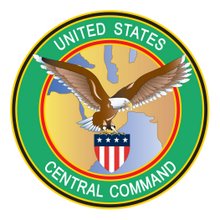 Amen to VDH once again for a concise summary of the road ahead
Amen to VDH once again for a concise summary of the road ahead-JS
We hear so much about the success of the enemy, rarely about our own in this war of attrition in Iraq. Yet the military knows exactly what the struggle has come down to: to what degree can the elected Shiite majority curb their own militias, overlook 30 years of past oppression, resist Iranian infiltration, invite in moderate Sunnis, and do that all soon enough to sway Sunnis so that the latter start turning on al Qaeda, accept their colossal mistake in boycotting the elections and rejoin the government.
And the American role-far from the caricatured one of a deer in the headlights amid a civil war-is critical: Take out both the al Qaeda terrorists and extremist Shiites, in such a fashion to reassure the average Iraqis to trust in their government.
In this war of attrition, victory hinges on who tires first, and at what point average beaten-down Iraqis step forward and began opposing anyone who keeps killing innocents and destroying their own sources of power, water, transportation, and civil services.
In terms of our own military, after four years of this, it seems a question of how quickly and how well we can promote veteran Lt. Colonels, Colonels, and one-stars who have extensive experience into positions of real authority-accepting that in war everything about the status quo, from promotion to recognition, must change and depend only on proven performance on the battlefield.
In every war, almost all successful generals were unheard of before the war, while those that were, were not at its end. So let us hope there is a lot of skipping of rank, as Gen. Petraeus gets the best of his Iraqi veteran Lt. Colonels and Colonels fast-tracked and into positions where they can really use their expertise and experience.
We hear only that the army is broken. It surely is stretched and hurting-but also, for good or evil, has an entire cadre of officers who have seen almost everything imaginable in counterinsurgency warfare, both effective and stupid, and are quite literally now the most experienced combat officers in the world-and should rightfully be promoted into generalships in Iraq where they can do the most good.
The Pentagon should understand this sense of necessary urgency. Yes, counterinsurgency takes years, but politically the time left is finite-and will end not when the Democrats (who cannot stop filibusters or override vetoes quite yet) say so, but when moderate Republicans in fear of the 2008 elections, order the war to stop. And that could be sooner that we think.
What ended Vietnam was not just the anti-war movement, and the Peace Democrats, but the combination of southern conservatives and post-Watergate disgusted Republicans that either voted for the cut-offs between 1973-5 or in passive resignation accepted their inevitability.
So, as is true in most long wars (cf. 1864 or 1918), armies seem not to be fully effective until they digest and learn from their horrific mistakes, and so enter a race to apply their wisdom before an exasperated public gives up.
In late summer 1864 the work of Sheridan and Sherman and the 1918 summer offensive uplifted public opinion enough to stick it out; in 1970-3 post-Tet, radical improvement in American tactics, weaponry, and know-how came too little too late to deflate the public sense of defeatism and doom.
To use an overused phrase: Once again, all eyes turn on Petraeus and the autumn.





No comments:
Post a Comment